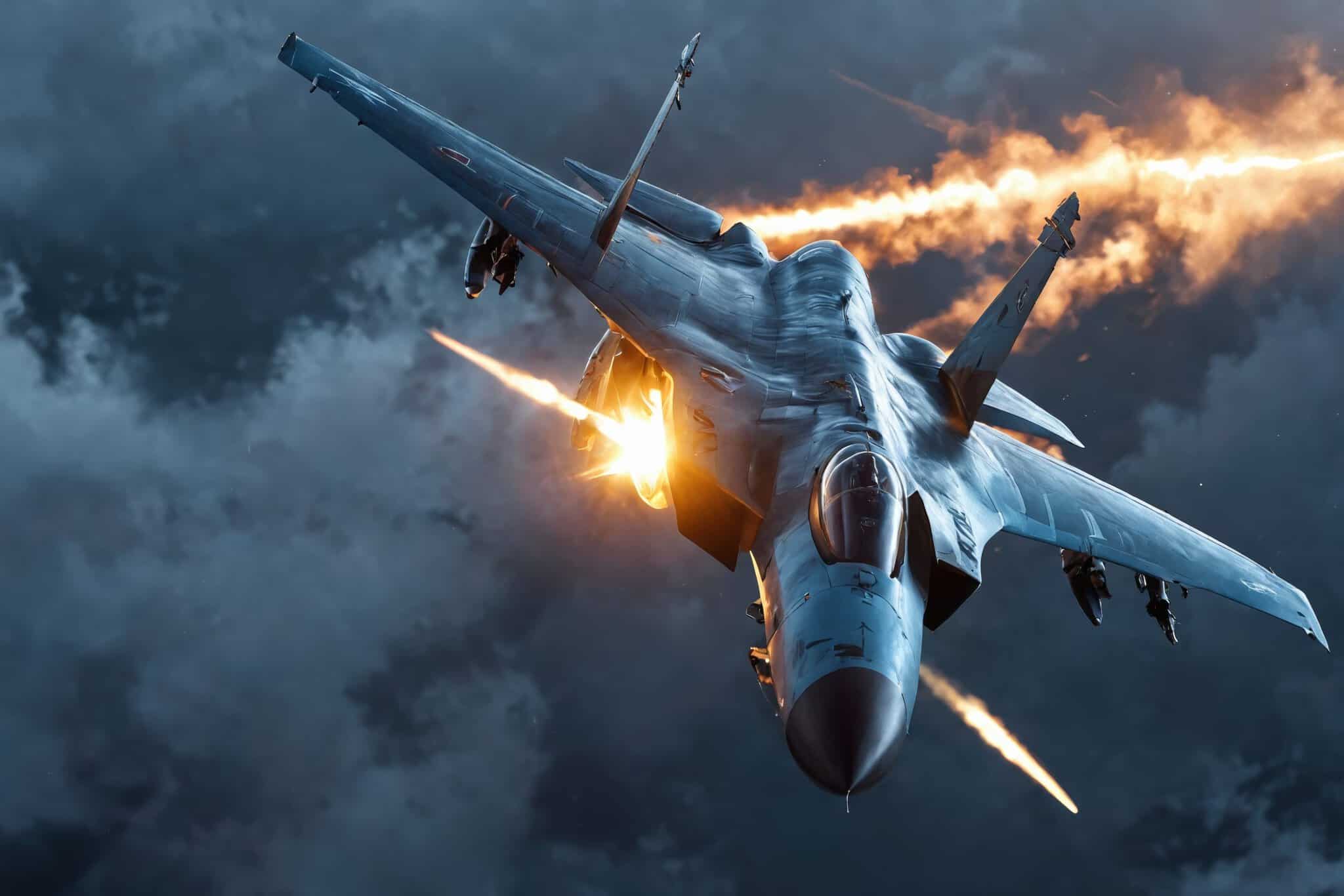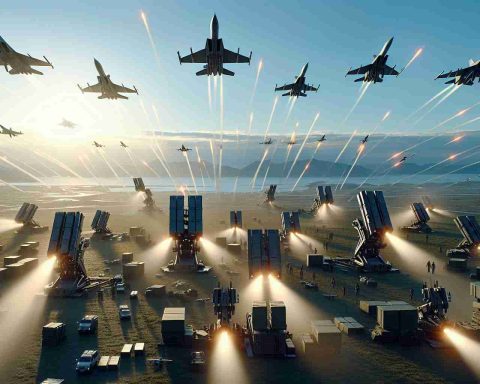The highly anticipated sequel to the classic 1986 film “Top Gun,” titled “Top Gun: Maverick,” reignites the passion for aviation and military aviation enthusiasts. One notable aspect of the film is its choice of aircraft, specifically the F/A-18 Super Hornet, rather than the next-generation F-35 Lightning II. This decision has stirred discussions among fans and experts alike. Here, we delve into the reasons behind this choice, shedding light on the implications for both the film and military aviation.
The F/A-18 Super Hornet has long been a mainstay of the U.S. Navy and is known for its versatility, reliability, and combat capabilities. The decision to feature this aircraft in “Top Gun: Maverick” can be attributed to its established presence within the Navy’s tactical aviation community. Using the F/A-18 allows for continuity with the original film while showcasing an aircraft that has been actively engaged in various combat operations. The familiarity and operational history of the Super Hornet provide a grounded backdrop for the film’s narrative, making it a recognizable symbol of naval aviation for audiences.
Another significant factor influencing this choice is the operational readiness and availability of the F/A-18. The F-35, while advanced and capable, has experienced delays and operational challenges that affected its deployment across various military branches. In contrast, the F/A-18 was already fully integrated into the fleet, making it logistically more feasible for the film’s production team to work with. Its broad availability ensured that realistic flight scenes could be captured without the complications associated with newer, less accessible aircraft.
Furthermore, the F/A-18 Super Hornet is often lauded for its maneuverability and performance in air-to-air combat scenarios. This makes for gripping cinematic action and showcases the skills of the pilots, aligning perfectly with the film’s theme of adrenaline-fueled aerial battles. The portrayal of high-speed maneuvers and dogfights is best suited to the capabilities of the F/A-18, providing viewers with thrilling and visually stunning sequences that are a hallmark of the Top Gun franchise.
Additionally, the film aims to appeal to both nostalgic audiences familiar with the original “Top Gun” and new viewers who are intrigued by modern military aviation. The F/A-18 serves as a bridge between generations, representing a time-tested aircraft that continues to play a vital role in today’s military landscape. By opting for the Super Hornet, the filmmakers effectively honor the legacy of the original while still incorporating cutting-edge technology within the narrative without overwhelming viewers with the complexities of the F-35’s advanced systems.
In conclusion, the decision to use the F/A-18 Super Hornet in “Top Gun: Maverick” instead of the F-35 stems from several pragmatic considerations. From operational readiness and historical significance to its embodiment of naval aviation’s spirit, the Super Hornet represents a fitting choice for the film. The filmmakers balance nostalgia with modernity, creating a tribute to both the legacy of the original film and the ongoing evolution of military aviation. The F/A-18 not only captures the essence of naval combat but also ensures aerial action sequences that thrill audiences and keep them on the edge of their seats.
Sky-High Tips and Facts about Military Aviation
Military aviation is not just a field of interest for enthusiasts; it also offers fascinating insights and practical tips for those looking to deepen their understanding or simply enjoy the thrill of flight. Here are some tips, life hacks, and interesting facts that will enhance your appreciation of the aerial world.
1. Embrace Flight Simulation: If you can’t get into the cockpit, flight simulators are an excellent way to experience the thrill of flying! Many realistic flight simulation software programs are available, some even simulating military aircraft like the F/A-18 Super Hornet. This is a fun way to understand flight dynamics and enhance your knowledge of aviation without leaving your home.
2. Attend Airshows or Military Expos: To get up close and personal with military aircraft, consider attending airshows or military expos. These events often feature flyovers, static displays, and opportunities to meet pilots and aviation professionals. Check local listings for events near you that showcase military aviation.
3. Watch Documentaries and Films: Films like “Top Gun: Maverick” offer thrilling visuals and emotional storytelling. However, documentaries can provide more in-depth knowledge about the aircraft, missions, and technology involved in military aviation. Look for documentaries that feature insightful interviews with veterans and aviation experts for a deeper understanding.
4. Join Online Communities: Engage with fellow aviation enthusiasts by joining online forums or social media groups centered on military aviation. You’ll find discussions about aircraft, technology, history, and personal experiences that can enhance your appreciation and understanding of the field.
5. Understand the Role of Various Aircraft: Different aircraft serve unique purposes within the military. For instance, the F/A-18 Super Hornet is a multirole fighter designed for air superiority and ground attack. Learning about the different capabilities and roles of these aircraft can enhance your understanding of their importance in military operations.
Interesting Fact – The Legacy of the F/A-18 Super Hornet: Did you know that the F/A-18 Super Hornet has served in numerous combat operations? Its adaptability has made it a crucial asset for the U.S. Navy in both air-to-air combat and ground support missions, solidifying its reputation as one of the most versatile military aircraft.
6. Stay Updated on Aviation Technology: Military aviation technology is continuously evolving. Keep yourself informed by reading aviation magazines, journals, and following reliable news sources. Understanding new developments, such as the ongoing advancements in fighter jets and drone technology, can provide context to films like “Top Gun: Maverick.”
7. Explore Virtual Reality Experiences: If you want to take your aviation interest to the next level, consider VR experiences that simulate flying military aircraft. These ever-evolving technologies provide an immersive experience that can make you feel as though you’re actually in the cockpit!
If you want to dive deeper into the world of aviation and military aircraft, you can explore more at Army Times and Air Force Times. These platforms offer a wealth of information, news, and insights that can satisfy even the most ardent aviation enthusiasts.
By incorporating these tips and facts into your exploration of military aviation, you can satisfy your curiosity and enjoy a new perspective on the thrilling world of flight. Whether you’re a fan of the classic “Top Gun” series or just eager to learn, there’s always more to discover above and beyond the clouds!
The article has been updated: 2024-11-05 10:08
Here are some related links you can use for your post titled “Why Top Gun Used the F/A-18 Instead of the F-35”:
1. Defense News – A leading source for defense industry news and analysis, providing insights on military aircraft and their usage in various scenarios.
2. Military.com – An extensive platform offering news, benefits, and resources for military personnel, including articles on aircraft specifications and military operations.
3. Air Force Magazine – The official publication of the Air Force Association, featuring articles on air power, aircraft technology, and military aviation history.
4. Naval Aviation News – The official publication that covers news and developments in naval aviation, focusing on carrier operations and aircraft like the F/A-18.
5. The Aviationist – A blog dedicated to military aviation and aerospace, providing in-depth analyses and articles about modern fighter jets, including the F/A-18 and F-35.
6. FlightGlobal – A comprehensive aviation news site that covers various aspects of aviation, including military aircraft comparisons and industry trends.
7. Jane’s Information Group – A trusted source for defense and security information, with detailed reports on military aircraft capabilities and operational use.
8. Air Force Modernization – A website focused on modernizing the air force, discussing the relevance and applications of current military aircraft like the F/A-18 and F-35.
These links will provide additional context and information relevant to your topic.
The article has been updated: 2024-11-05 19:02
Why did Top Gun choose the F/A-18 instead of the F-35 for its sequel?
The decision to use the F/A-18 Super Hornet instead of the F-35 Lightning II in “Top Gun: Maverick” was largely influenced by several factors. The F/A-18 is a proven platform that has been in service for decades, offering a combination of agility, robustness, and operational reliability. It has a strong legacy in naval aviation and is familiar to both pilots and audiences.
Moreover, the F/A-18’s capabilities allow for high-speed maneuvers and dogfighting, which are essential for the dynamic aerial combat scenes depicted in the film. The filmmakers prioritized action-packed sequences and realistic flight operations, which the F/A-18 could deliver effectively.
Additionally, during the production timeline, the F-35 was still relatively new and not fully operational for all aspects of carrier-based air combat. The choice of the F/A-18 ensured that the film could showcase exciting and visually impressive air combat sequences while still maintaining authenticity in naval aviation representation.


















